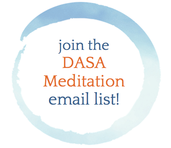We've arrived. Now, a stressful lifestyle is an American norm.
But what is the actual cost to our health and happiness?
We must also consider that we each have our own unique set of stressors. In other words, what causes immediate stress for one person, may not be the case for another. Genetics, traumatic life experiences, and childhood experiences may all play the role in what buttons get pushed, and how easily. The regular practice of meditation can help soften your reaction to stressors.
"Life is 10% what happens to you and 90% how you react to it." ~ Charles R. Swindoll
without reacting negatively to them (Epstein 1995).
Understanding how our body reacts to stress (Mayo Clinic)
When you encounter a perceived threat — a large dog barks at you during your morning walk, for instance — your hypothalamus, a tiny region at the base of your brain, sets off an alarm system in your body. Through a combination of nerve and hormonal signals, this system prompts your adrenal glands, located atop your kidneys, to release a surge of hormones, including adrenaline and cortisol.
Adrenaline increases your heart rate, elevates your blood pressure, and boosts energy supplies. Cortisol, the primary stress hormone, increases sugars (glucose) in the bloodstream, enhances your brain's use of glucose and increases the availability of substances that repair tissues.
Cortisol also curbs functions that would be nonessential or detrimental in a fight-or-flight situation. It alters immune system responses and suppresses the digestive system, the reproductive system, and growth processes. This complex natural alarm system also communicates with regions of your brain that control mood, motivation, and fear (read more).
In addition to eating a healthy diet, plenty of sleep, exercise, and the regular practice of meditation, here are a few more practical and simple tips to keep your stress levels in check.
- Don't set yourself up with unrealistic expectations. Know your limitations.
- Give yourself permission to relax - take down-time in nature to rejuvenate.
- Keep your wish list simple. Find joy in the small things in life.
- Create a schedule that factors in the time you need to take care of yourself. Make it a routine.
- Learn to trust yourself and your choices.
DASA Meditation - Celebrating 40 Years.




 RSS Feed
RSS Feed

